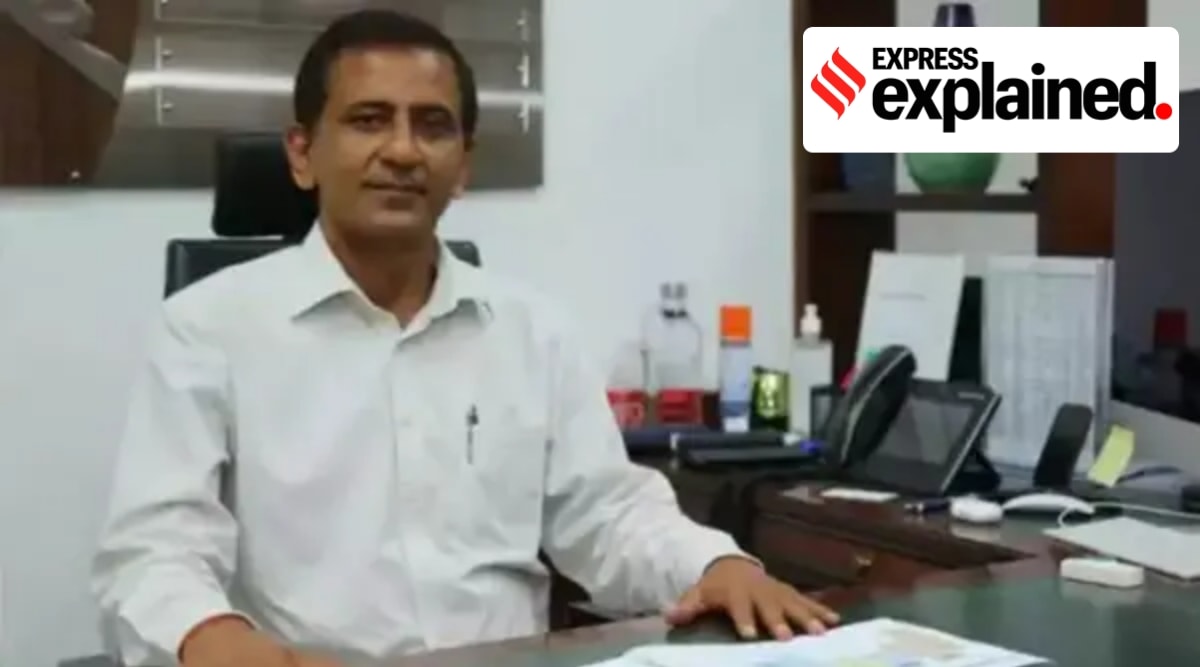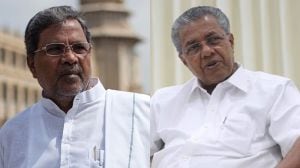Explained: The corruption allegations against Satish Agnihotri, the dismissed chief of the bullet train project
Satish Agnihotri, an Indian Railway Service of Engineers officer of the 1982 batch, did not fit the advertised age criteria of mid-fifties, and was never in the race for the post.
 Satish Agnihotri. (Express)
Satish Agnihotri. (Express)The ouster of the National High Speed Rail Corporation Ltd (NHSRCL) chief Satish Agnihotri on Thursday (July 8) was as dramatic as his return to active service to helm the prestigious bullet train project a year ago.
In retirement since 2018, the former Chairman and Managing Director of the Railway engineering PSU Rail Vikas Nigam Limited (RVNL) was 63 years old when he was brought back as MD of NHSRCL by the government.
Agnihotri, an Indian Railway Service of Engineers officer of the 1982 batch, did not fit the advertised age criteria of mid-fifties, and was never in the race for the post.
Not long after his appointment, letters started to be written to the government from people within the system, with startling allegations of the embezzlement of huge amounts of government funds, especially during Agnihotri’s nine years in RVNL, his last assignment before retirement. Private social media spaces of officers were also flooded with such allegations.
By September 2021, these allegations found their way to the Lokpal, the country’s highest corruption watchdog. In November, the Lokpal formalised the case, detailing the allegations, and sought Agnihotri’s response.
By January this year, Agnihotri had responded, denying all allegations. Sources said he privately alleged that his “enemies” were at work, trying to bring him down. However, by June, a division bench of a Lokpal Court ordered a CBI probe into the allegations.
The government has now decided that considering the gravity of the allegations, Agnihotri’s position had become untenable.
What is the allegation against Agnihotri?
At the heart of the allegations lies Agnihotri’s alleged ties with Hyderabad-based Navayuga Engineering Company Limited (NECL), which owns the Krishnapatnam Rail Company Limited (KRCL), a Special Purpose Vehicle, formed to lay railway lines to the Krishnapatnam port in Andhra Pradesh. RVNL, which Agnihotri headed, was the contractor for the project, and also owned a minority stake in the company.
The complainant in the Lokpal case has alleged that Agnihotri as RVNL chief diverted railway funds to the tune of Rs 1,100 crore to KRCL for years, even when KRCL could not arrange for funds itself to pay RVNL for the work that it did. Since RVNL was a partner in the company, it was easier for officials to turn a blind eye to the irregularity.
In the event, however, even while the job got done and the private company reaped the commercial benefits of the line, RVNL — which is basically the government — did not get its money. This happened even though the rules of engagement were that RVNL would do KRCL’s work only after receiving payment in advance.
Year after year, this money was shown in the books “receivable” from KRCL. This, the complaint said, was a violation of rules — as Public Sector Undertakings were not allowed to divert government funds to private entities in this manner.
Officials said the amount of money pumped in would have been big enough for RVNL to bargain for a greater stake in KRCL, but Agnihotri kept RVNL’s share in KRCL at 49 per cent, just enough to keep KRCL a private company.
As per the complaint, the dues, after adding interest at the market rate, would amount to Rs 1,600 crore. According to independent auditors mandatorily engaged by RVNL, this was a glaring gap in its books shown in subsequent years.
“RVNL receives advance payments from SPVs for incurring expenditures on their projects. However, in the case of KRCL, RVNL is incurring project expenditures on regular basis but no amount is being received from KRCL,” the auditors remarked in 2021, by which time the amount receivable had crossed Rs 1,200 crore. After the complaint came into focus last year, the Ministry of Railways instructed RVNL to recover this money.
What did Agnihotri allegedly get in return?
As per the complaint, right after retirement in 2018, without waiting for the mandatory one-year cooling-off period or taking special permission from the government, Agnihotri took up employment by NECL as its CEO, and moved into a house in New Delhi’s Mehrauli area. The Lokpal complaint says his daughter too was employed by NECL.
The complainant has submitted to the Lokpal a court copy of an FIR pertaining to an alleged argument that Agnihotri had with the landlord of the house, in which it is mentioned that the house was leased by NECL, which was to also pay the dues of the local Residents’ Welfare Association (RWA).
It is alleged that as CEO of NECL, Agnihotri used his contacts and inside knowledge to help the company secure a mega contract from RVNL worth Rs 1,900 crore to construct the Rishikesh-Karnaprayag line.
Are there any other complaints against Agnihotri?
There are allegations about Agnihotri “manipulating” and formulating a system of Performance Related Pay (PRP) as CMD of the PSU. He allegedly kept easily achievable targets, and received “outstanding” ratings every year. As per the Annual Reports of the company, the PRP was more than his annual salary in 2018-19, the complaint says. The pay received by some directors in the company were equal to or more than their salaries.
The Lokpal bench has asked the Department of Public Enterprises (DPE) to review the policy of granting performance related pay to employees of PSUs where the companies get work on nomination basis from the government.
What happens now?
While the complainant had named Agnihotri and one other person, a former Director (Finance) of RVNL, the Lokpal court has found that no evidence of quid pro quo could be established against the other officer and hence no further action was required.
In the case of Agnihotri, the charges have been deemed serious enough for the CBI to carry out a thorough probe to see if provisions of the Prevention of Corruption Act, 1988 were violated by the ex-MD of the bullet train project. The allegations pertain to quid pro quo, misuse of official authority to benefit private parties, and embezzlement of hundreds of crores of government funds. The CBI will submit its report by December this year.
- 01
- 02
- 03
- 04
- 05






































